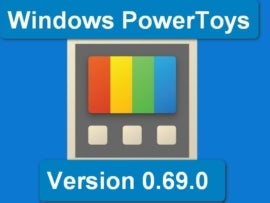
Americans are divided on whether artificial intelligence will hurt job-seekers or help them, according to a new Pew Research Center report. The survey of 11,004 people conducted in December 2022 covers a broad swath of questions on the topic of whether workers think AI might make the hiring process better or worse and how.
Jump to:
- Respondents divided on whether AI will help or hurt workers
- Many job applicants oppose AI in hiring
- Opinions on employers using AI to track workers
- How AI in hiring affects candidates’ decisions to apply
- Some concern about racial bias when using AI for hiring
- Awareness of AI in hiring still has room to grow
Respondents divided on whether AI will help or hurt workers
About a third of Americans (32%) think AI will equally harm and hurt workers generally, while another 32% think it will hurt, 13% think it will help and 22% are not sure about its potential effect.
The survey asked whether people were comfortable with employers using AI to “collect and analyze data, make decisions and complete tasks,” particularly in hiring. Although the survey did not specify the type of AI that might be used, the timing matches with the proliferation of generative AI such as ChatGPT.
Most survey respondents (62%) think AI will have a major impact on the American workforce in general. Another 21% said it would make a minor impact. A small portion predicted it would have no effect (2%) or are unsure (15%). Those numbers change a bit when workers are asked about AI’s impact on them as individuals specifically: 35% predicted AI would have only a minor impact on their jobs, 28% anticipated it would have a major impact, 19% said it would have no impact and another 19% are unsure.
SEE: Some hiring managers are shifting focus to skills, not degrees or specific experience.
Many job applicants oppose AI in hiring
The Pew Research study shows that most Americans surveyed (72%) are opposed to AI making final hiring decisions. Some are receptive to the idea of AI being involved in part of the hiring process, but not making the final decision — 41% say they oppose the idea of AI reviewing job applications, while 28% favor it and 30% are unsure.
People are also reluctant about applying to a job knowing an AI is helping to make hiring decisions, with 66% saying they would not want to even begin to apply in that case. Another 32% would still want to apply.
SEE: LinkedIn found 68% of people involved in hiring are optimistic about AI’s impact on recruiting.
Opinions on employers using AI to track workers
American adults are more split on whether they favor or oppose the use of AI to track workers’ productivity and handle other day-to-day management tasks. Out of all respondents, 47% oppose the idea of using AI analysis of worker performance to make decisions about who to promote, while 22% favor it.
The numbers are similarly split on other ways in which AI used to track productivity might reduce privacy. Of the survey respondents, 51% oppose using AI to track exactly what workers are doing on their work computers, while 27% favor it and 22% are unsure. A large majority (70%) oppose using AI to analyze employees’ facial expressions, the least popular use case posed by the survey.
How AI in hiring affects candidates’ decisions to apply
Another important aspect of the prospect of using AI in the hiring process is that job applicants want “the human factor.”
“What if I don’t have the ‘right’ keywords on my application?” one respondent, a woman in her 40s, wrote. “Would I be dismissed outright?”
In total, 66% said they would not want to apply to a workplace that uses artificial intelligence to help in hiring decisions; another 32% said they would still apply. The remaining percentage did not give an answer.
Some concern about racial bias when using AI for hiring
Another concern about AI hiring is that it would exacerbate bias in the hiring process. A majority (53%) of applicants who believe racial or ethnic bias are a problem in hiring believe AI would reduce that bias, while 13% say AI would be worse than humans at treating applicants equally. Others think it would be about equally biased as humans (32%). Out of the members of the surveyed group who are Black Americans, 47% said AI would reduce bias in hiring, and 20% say it would get worse, which is a stronger negative sentiment than the group overall. Thirty-two percent of surveyed Black Americans said they weren’t sure.
Awareness of AI in hiring still has room to grow
As of this late 2022 survey, a majority of Americans are not thinking about how AI could be used in the hiring process. According to Pew, 61% said they hadn’t heard about AI use in the hiring process before participating in the survey. Employers should be transparent about whether they are using AI in their hiring process and educate job seekers about what to expect from that process.






